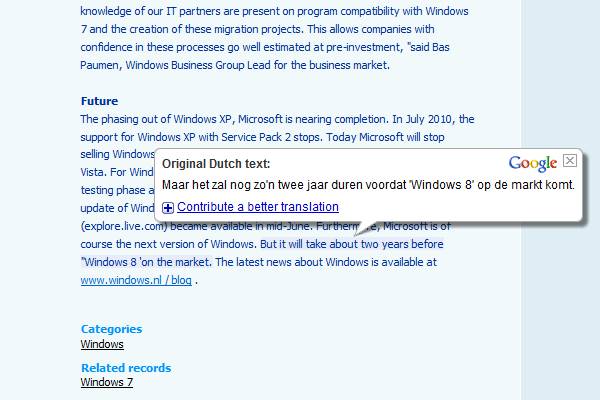In a blog post on its Dutch Web site, Microsoft not only referred to the next release of its PC operating system as Windows 8, which is the first time it has done so officially, but the company said it is about two years away from release. Microsoft has widely said that after the long time it took the company to bring Windows Vista to market, it would go back to a three-year cycle. The company managed to deliver early with Windows 7, in time for last year's holiday season. It is thus widely expected that Microsoft will have Windows 8 ready for the 2012 holiday season, but now the company has gone on record saying that it should arrive two years from now.
Microsoft Netherlands released the information in a blog post that was celebrating Windows 7's first birthday. At the time of writing, the blog post (via winrumors) was still available. Microsoft has yet to take it down, but in case it does, we took a screenshot of the Google Translate version:

In case you can't see the image, the translated text is as follows: "Furthermore, Microsoft is of course the next version of Windows. But it will take about two years before "Windows 8 'on the market." Microsoft is of course refusing to comment on the information and the company's American blog posts celebrating Windows 7's anniversary do not mention Windows 8 at all. Sometime next year we will hopefully see an official announcement, followed by beta versions of the new OS.
https://www.techspot.com/news/40823-microsoft-windows-8-is-about-two-years-away.html